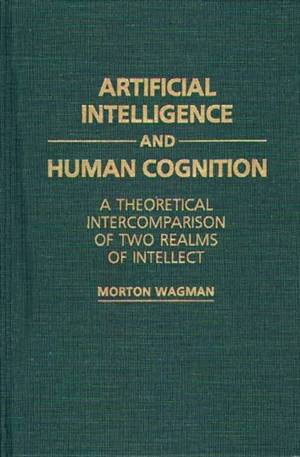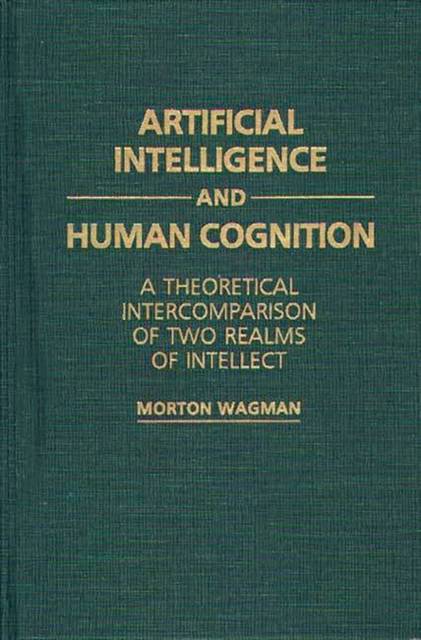
- Retrait gratuit dans votre magasin Club
- 7.000.000 titres dans notre catalogue
- Payer en toute sécurité
- Toujours un magasin près de chez vous
- Retrait gratuit dans votre magasin Club
- 7.000.0000 titres dans notre catalogue
- Payer en toute sécurité
- Toujours un magasin près de chez vous
Artificial Intelligence and Human Cognition
A Theoretical Intercomparison of Two Realms of Intellect
Morton Wagman
Livre relié | Anglais
127,45 €
+ 254 points
Description
Morton Wagman examines the emulation of human cognition by artificial intelligence systems. Human thought and computer thought are compared in their distinctiveness and commonality. The book provides detailed examples of artificial intelligence programs (such as the FERMI System and the KEKADA program) accomplishing highly intellectual tasks. This, together with its coverage of general theoretical perspectives on the nature of cognition, make this volume both a valuable sourcebook and a stimulus for students and professionals in cognitive science, psychology, philosophy, and artificial intelligence courses.
A general introduction to the computational modeling of cognition opens the book. Considered next are computational reasoning and human rationality. The range, depth, and sensitivity of mathematical and legal reasoning systems are compared with human mathematicians and human jurisprudence. General issues concerning the quality of human rationality are examined in several contexts: the prediction of economic behavior, mathematical abstraction and the concept of the infintesimal, and probalilistic judgement under uncertainty. Other chapters consider the nature of problem solving in the context of general intellectual principles and specific domain knowledge, the cognition of scientific discovery, and language representation modes and information processing efficiency. In the last chapter the most impressive intellectual achievements of AI systems are summarized. Directions for further intellectual research in this realm are also indicated.Spécifications
Parties prenantes
- Auteur(s) :
- Editeur:
Contenu
- Nombre de pages :
- 168
- Langue:
- Anglais
Caractéristiques
- EAN:
- 9780275936150
- Date de parution :
- 30-03-91
- Format:
- Livre relié
- Format numérique:
- Genaaid
- Dimensions :
- 156 mm x 234 mm
- Poids :
- 412 g

Les avis
Nous publions uniquement les avis qui respectent les conditions requises. Consultez nos conditions pour les avis.






